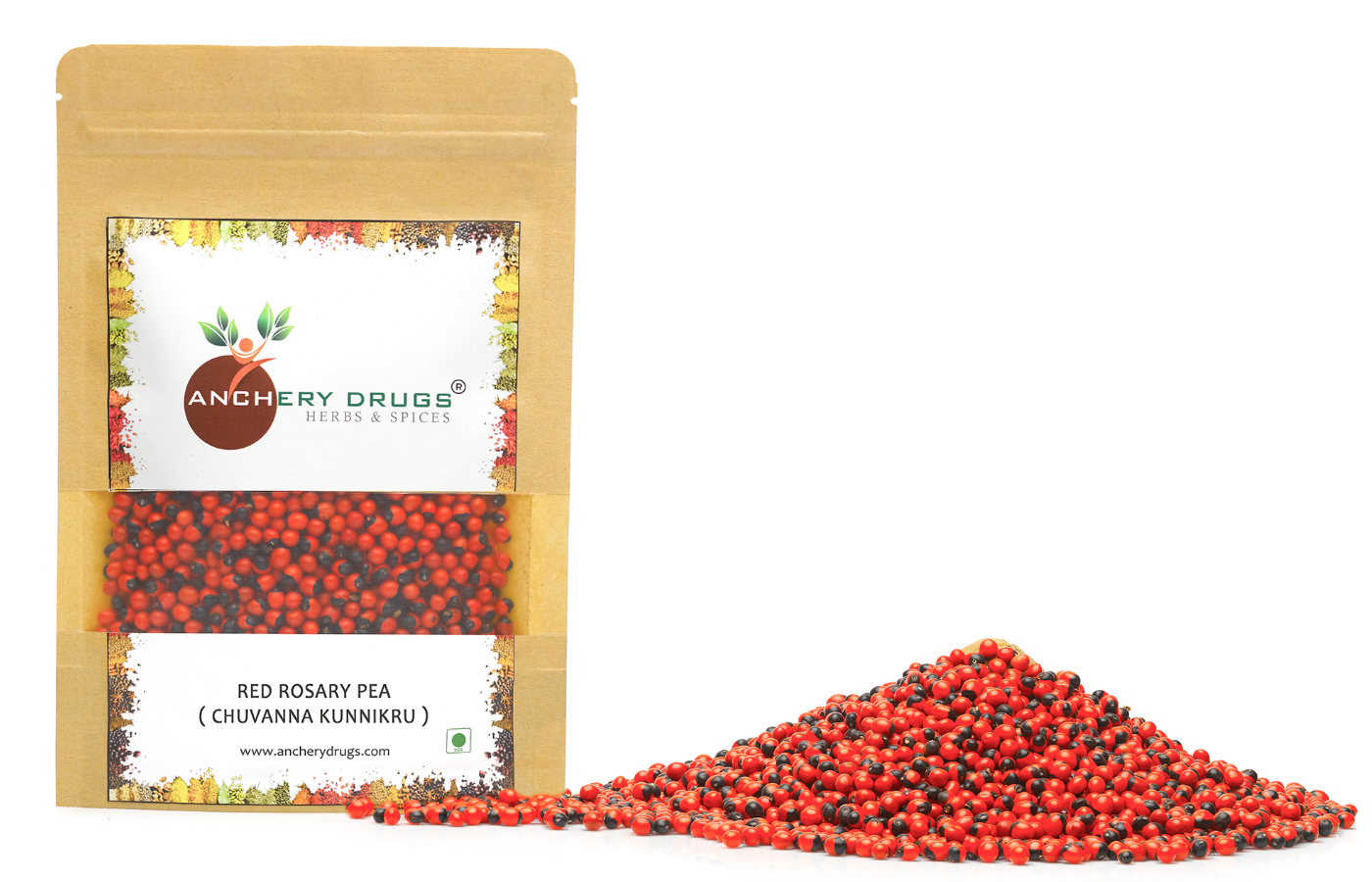
Weight :
Abrus precatorius, known commonly as jequirity, Crab's eye, or crab's eye creeper, cock's eyes, rosary pea, paternoster pea,love pea, precatory pea or bean, prayer bead, John Crow Bead, coral bead, red-bead vine, country licorice, Indian licorice,wild licorice, Jamaica wild licorice, Akar Saga, coondrimany, gidee gidee, Jumbie bead ratti/rettee/retty, or whether plant, is a slender, perennial climber that twines around trees, shrubs, and hedges. It is a legume with long, pinnate-leafleted leaves.
The plant is best known for its seeds, which are used as beads and in percussion instruments, and which are toxic because of the presence of abrin. Ingestion of a single seed, well chewed, can be fatal to both adults and children. The plant is native to a number of tropical areas. It has a tendency to become weedy and invasive where it has been introduced.
Abrus precatorius called kundu mani in Tamil, Guruvinda ginja in Telugu and 'Kunni kuru' in Malayalam, has been used in Siddha medicine for centuries. The white variety is used to prepare oil that is claimed to be an aphrodisiac. A tea is made from the leaves and used for fevers, coughs, and colds. Seeds are poisonous and therefore are used after mitigation. The Tamil Siddhars knew about the toxic effects in plants and suggested various methods which are called "suththi seythal" or purification. This is done by boiling the seeds in milk and then drying them. The protein is denatured when subjected to high temperatures which remove its toxicity.
The 1889 book 'The Useful Native Plants of Australia’ records that "The roots of this plant are used in India as a substitute for liquorice, though they are somewhat bitter. In Java, the roots are considered demulcent. The leaves, when mixed with honey, are applied to swellings, and in Jamaica are used as a substitute for tea. Under the name of "Jequirity", the seeds have recently been employed in cases of ophthalmia, a use to which they have long been put in India and Brazil."
The plant is also used in Ayurveda and is said to promote hair growth. It is sometimes used as an ingredient in Indian hair productss